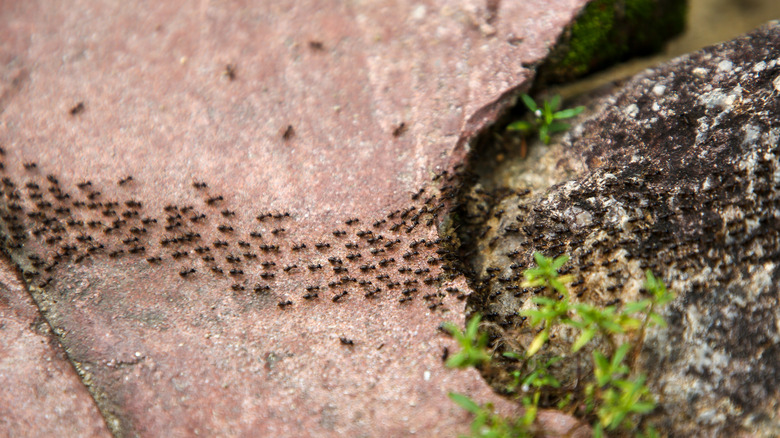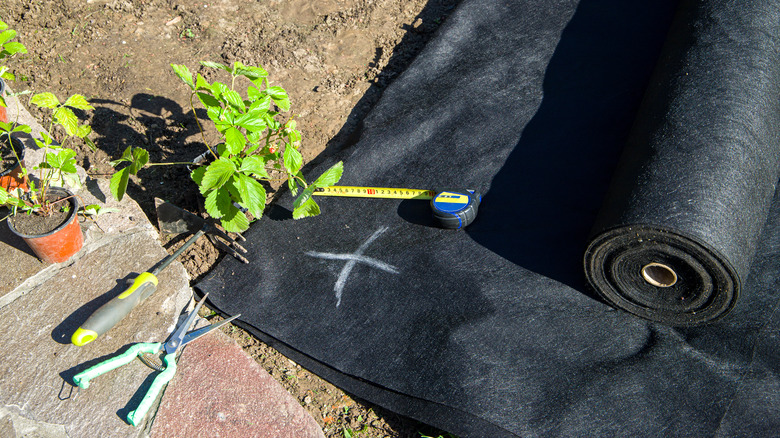Are Ants Really Attracted To This Common Garden Feature?
An ant infestation in the kitchen or pantry is never a fun thing to deal with. These pesky insects make their way into homes through even the smallest of cracks and crevices, looking for food and shelter. Naturally, one of the best ways to keep ants out of your home is to make the area around your house inhospitable to them. Unfortunately, rock landscaping, a common garden feature, provides an ideal environment for ants to thrive, drawing them closer.
There's no doubt pea gravel and other types of landscaping rock provide a beautiful alternative to mulch. However, garden pebbles in the yard can provide shelter, shade, and protection from predators, which are all attractive features to ants. Since these insects colonize, what starts as a few ants in the rock garden can eventually lead to a large infestation and unsightly anthills within your landscaped area. Then, before you know it, worker ants start making their way into your home, looking for food to bring back to the colony.
How to keep ants from invading your rock landscaping (and how to treat the ones that already have)
Here's the good news — you don't need to get rid of your rock landscaping to prevent ants. Instead, simply make the area undesirable to them. One of the first things you can do is place landscaping fabric under the rocks. This fabric can act as a barrier, preventing ants from reaching the soil and promoting better drainage around the stones. Proper drainage is vital, as some ant species, such as moisture ants, prefer damp areas. Another prevention method is adding ant-repelling plants to the area. If you're looking for a flower, the scent of marigolds may prove useful in repelling ants and mosquitoes. There are also a number of fragrant herbs that deter ants, including peppermint, spearmint, rosemary, lavender, basil, and lemongrass.
To treat an existing infestation in your landscaping rocks, sprinkle diatomaceous earth (DE) over the infested areas. Diatomaceous earth is a natural substance made from the fossilized bodies of diatoms, which are tiny aquatic animals. This powdery substance is safe for humans and pets when used as directed, but it can kill ants and other crawling insects by damaging their exoskeleton when they come into contact with it, causing them to dehydrate. Two other natural but effective ways to get ants out of your yard without harsh chemicals include pouring boiling water over the ant hills and applying orange oil to infested areas.

